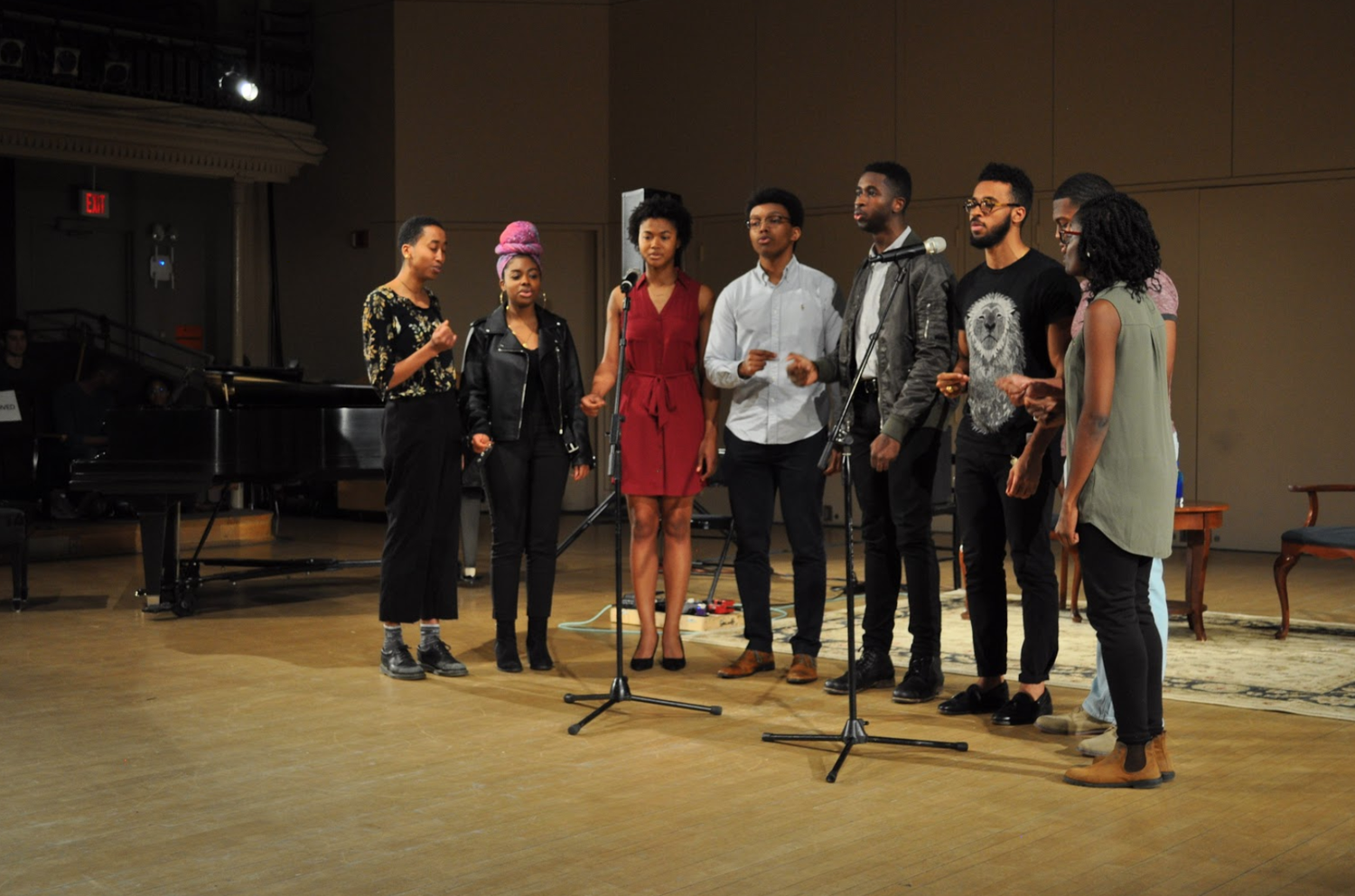
News
News Flash: Memory Shop and Anime Zakka to Open in Harvard Square

News
Harvard Researchers Develop AI-Driven Framework To Study Social Interactions, A Step Forward for Autism Research

News
Harvard Innovation Labs Announces 25 President’s Innovation Challenge Finalists

News
Graduate Student Council To Vote on Meeting Attendance Policy

News
Pop Hits and Politics: At Yardfest, Students Dance to Bedingfield and a Student Band Condemns Trump
Kuumba Concludes Its 20th Annual Black Arts Festival

The Kuumba Singers of Harvard College’s wrapped up their 20th annual Black Arts Festival concluded with a brunch on Sunday celebrating and reflecting on a week of events dedicated to creating and celebrating work by black artists.
While Kuumba focuses primarily on song, their week-long arts festival is more broadly oriented, with topics that range from writing to film.
“I think it’s important for people to understand that Kuumba is not just a choir, BAF co-chair Olutoyin Demuren ’18 said. “Kuumba is this artistic space that is really unique of this campus.”
According to Demuren, the goal of the festival is to highlight Kuumba’s legacy—which she said began in the 1970s amid high racial tensions on campus—while connecting the work of black artists to a broader historical context.
Demuren and fellow co-chair Lindiwe P. Makgalemele ’18 said they started planning for the festival last spring shortly after being elected to its planning committee in the spring. Kuumba President Marcus K. Granderson ’18, who formerly chaired the BAF committee, noted that Demuren and Makgalemele’s roles required significant personal commitment.
“It’s a really involved process. You start in the spring. Then you spend the summer thinking about your theme,” Granderson said. “You’re a producer; you’re a finance chair; you’re publicity; you’re a spokesperson. You’re the face of BAF. As BAF chair or committee, you do everything.”
A particular focus of the festival is to host black artists across a wide range of skill levels and backgrounds, Demuren said.
“BAF gives voice to so many different types of art that don’t get attention on this campus and in general. It also highlights an artistic heritage for a people that have a long history of struggling but also hope and promise,” Granderson said.
Demuren added that the festival seeks to connect art with broader societal themes and highlight a variety of narratives experienced by black communities.
“There is a lot of power in art, in the creation of art, and in representation through art to represent experiences often marginalized and to show a diversity of stories that aren't always heard,” Demuren said. “Sometimes, there’s just one story that comes out off communities.”
Though Kuumba is a College-recognized undergraduate organization, not all BAF events were limited to Harvard affiliates. For example, their first event, a masterclass with Grammy Award-winning singer Jill Scott, was open to the public.
“I was really happy we were able to open [the Jill Scott masterclass event] up to members of the community because the ability for the community, and not just the Harvard community, to have access to the kind of honesty and authenticity that Jill Scott was able to produce was really powerful,” Demuren said.
Kuumba members said they thought the masterclass event, which also featured student performers and Music Professor Esperanza Spalding, was among the highlights of the festival.
“I have planned BAF, been to BAF events, and I have been to multiple events at Harvard and in the black community, but [the masterclass] is probably the most inspiring, fulfilling, emotionally raw, and honest event I have ever been to,” Granderson said. “I felt honored to be in that space as the exchange of art and humanity was taking place.”
—Staff writer Andrea M. Bossi can be reached at andrea.bossi@thecrimson.com and on Twitter @bossi147
Want to keep up with breaking news? Subscribe to our email newsletter.
From Our Advertisers

Over 300+ courses at prestigious colleges and universities in the US and UK are at your disposal.

Where you should have gotten your protein since 1998.

Serve as a proctor for Harvard Summer School (HSS) students, either in the Secondary School Program (SSP), General Program (GP), or Pre-College Program.

With an increasingly competitive Law School admissions process, it's important to understand what makes an applicant stand out.

Welcome to your one-stop gifting destination for men and women—it's like your neighborhood holiday shop, but way cooler.

HUSL seeks to create and empower a community of students who are seeking pathways into the Sports Business Industry.
